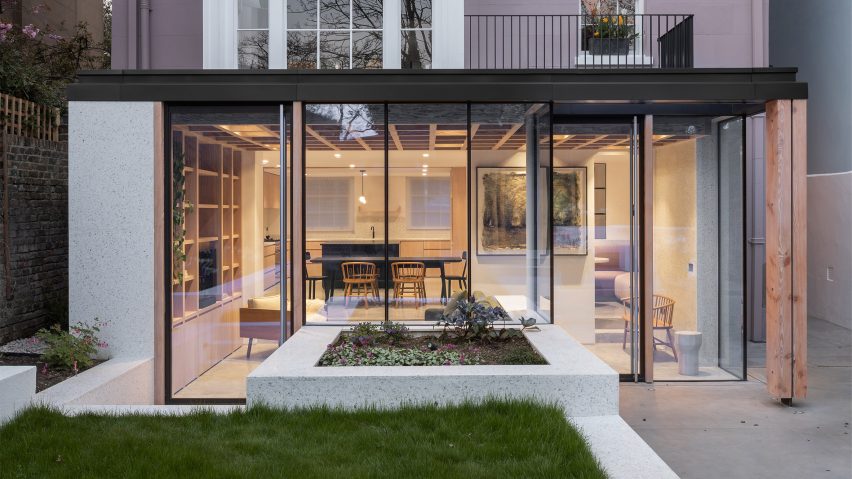
Will Gamble Architects draws on desert modernism for London extension
British studio Will Gamble Architects used natural materials throughout Palm Springs, a glazed extension to the back of a Grade II-listed house in north London.
Located in a conservation area, the extension is informed by desert modernism, a style that emerged in Palm Springs during the mid-20th century.
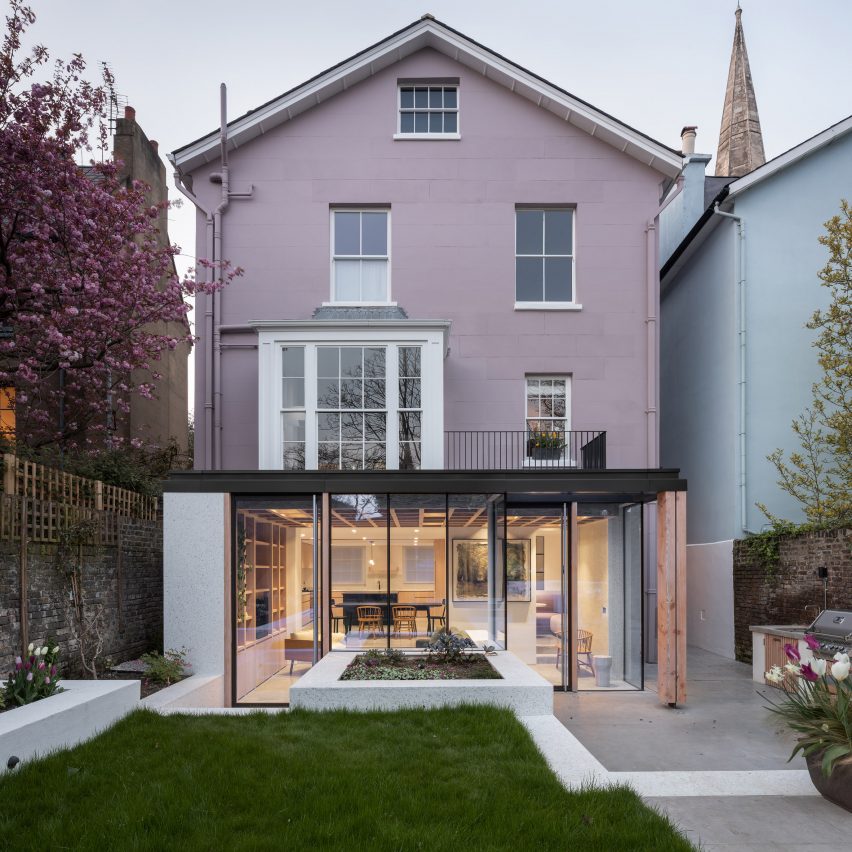
Nodding to the clients' ties to California, Will Gamble Architects took cues from both the forms and material palettes of desert modernism for the project.
This includes the use of natural materials and floor-to-ceiling glazing on the walls of the extension, which are designed to connect the interior to the outside.
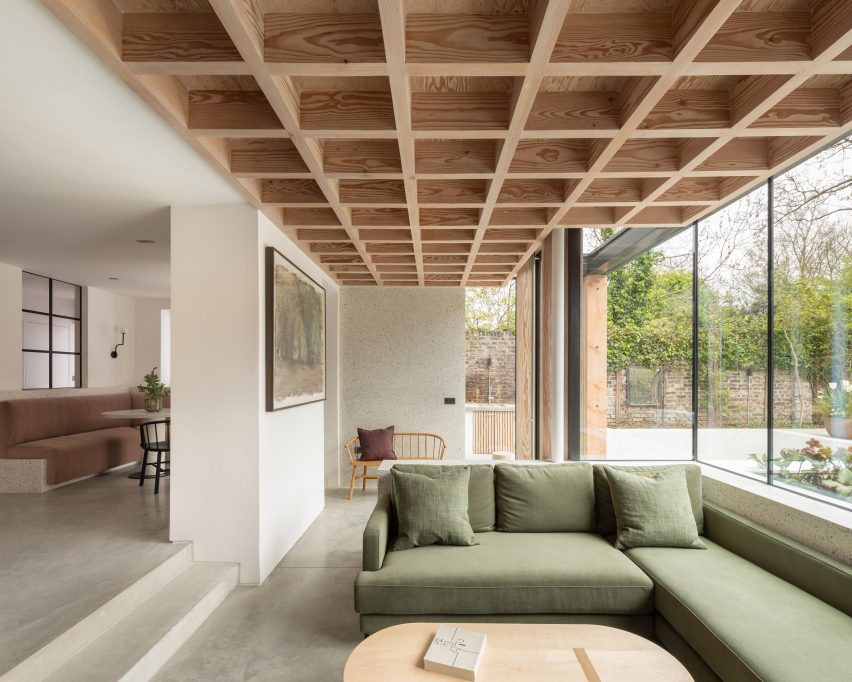
"The overarching concept behind the design is influenced by the clients' connection with California and desert modernism which helps define the architectural landscape of Palm Springs," studio founder Will Gamble told Dezeen.
"Notable for its use of floor-to-ceiling glass, clean lines, natural materials and the connection between indoor and outdoor space, desert modernism became the driving design principle behind the entire scheme."
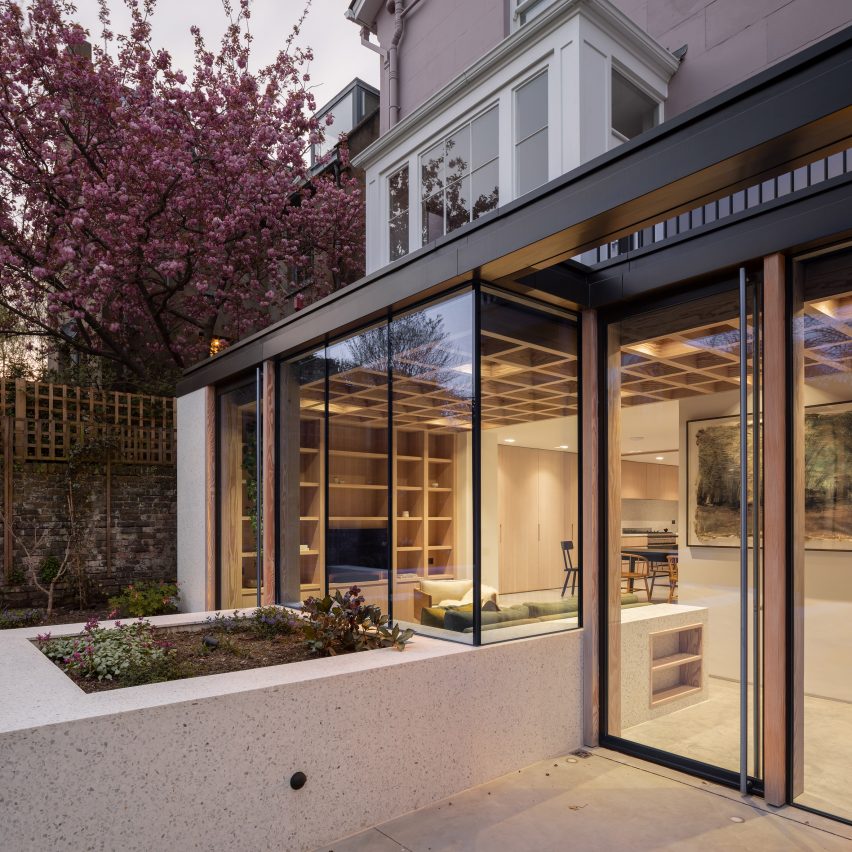
In addition to extending the home, Will Gamble Architects refurbished and rearranged its existing interior. A living space now spans the old and new portions of the ground floor.
Upstairs, the studio aimed to keep interventions to a minimum. Historical features, including intricate ceiling mouldings and a delicate staircase balustrade, are highlighted against a minimal backdrop of white-painted walls and a grey floor.
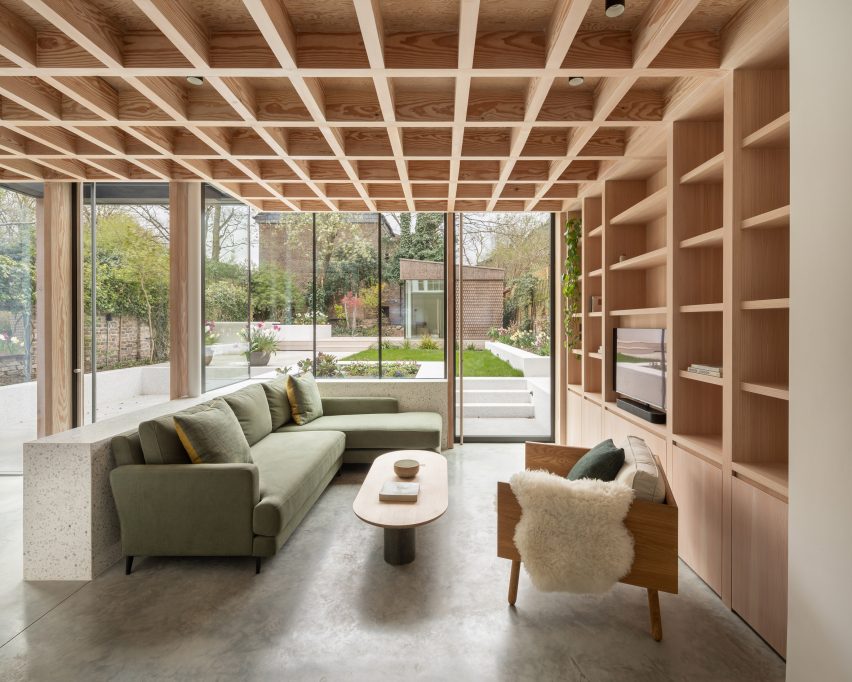
The living and dining spaces on the extended lower floor sit beside a kitchen area that is nestled at the end of the existing portion of the home.
Douglas fir cupboards and terrazzo countertops feature throughout the ground floor, while a large cubic volume coated in black marble sits at the centre of the kitchen.
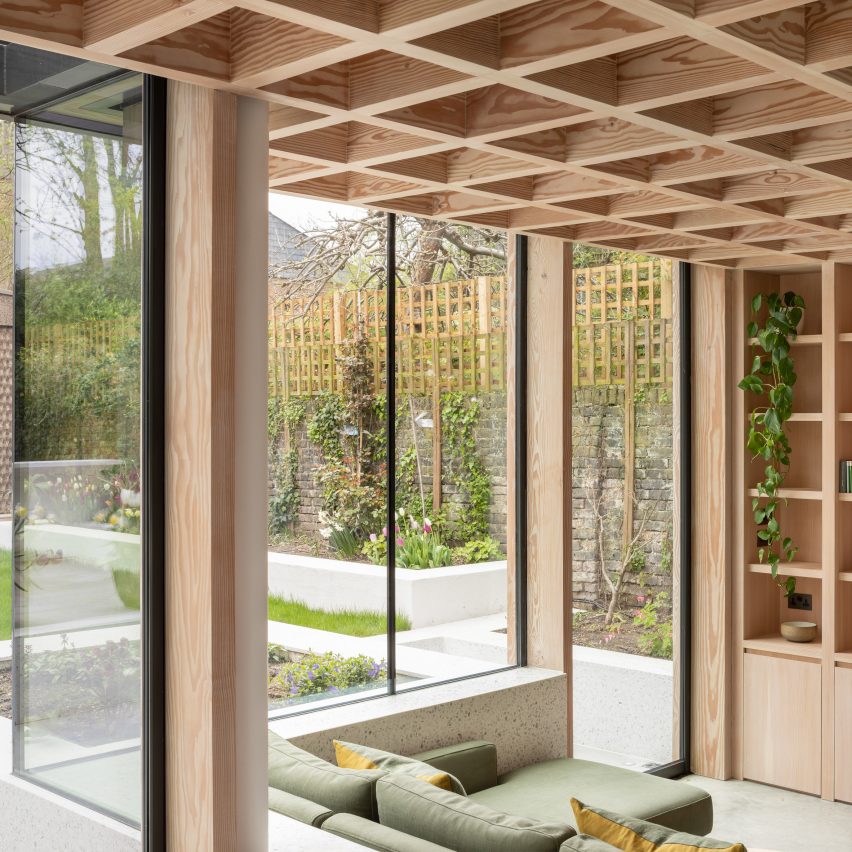
Between the living, dining and kitchen spaces, a set of sliding wooden doors can be pulled out to divide the open plan. The studio hopes this will allow the space to be used flexibly.
Dropped slightly below the rest of the ground floor, the extension is surrounded by glazed walls and animated by a gridded timber ceiling that extends down one wall to form an arrangement of cubby holes and cupboards.
"The lattice roof, with its grid-like arrangement, was inspired by the honest use of natural materials and expression of structure that is a defining feature of modernist design," Gamble explained.
"The floating roof draws your eye out into the garden to establish an intimate connection with the surrounding garden."
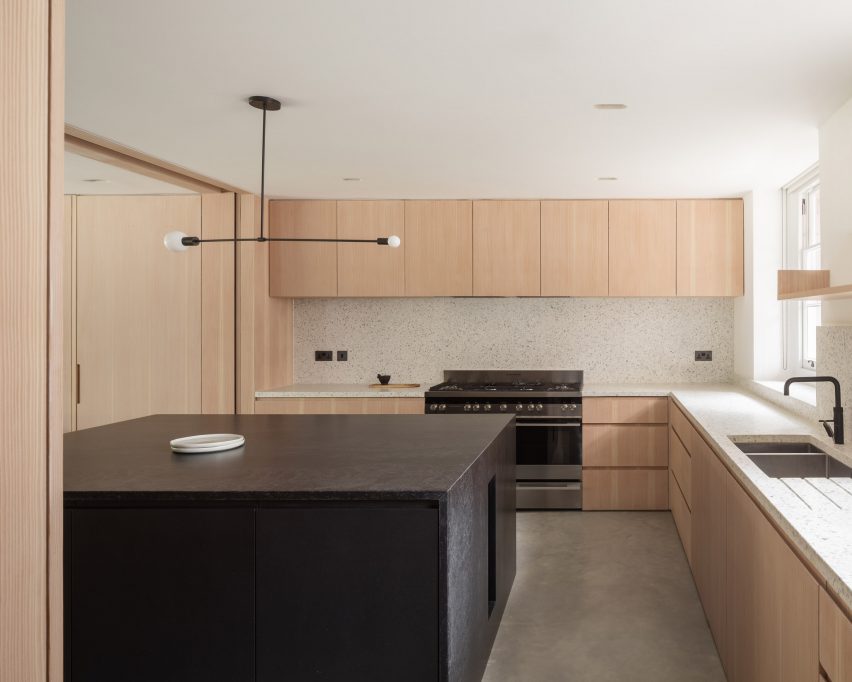
Earth-toned furnishings including a green corner sofa help to emphasise the interior's natural material palette. Terrazzo is used inside and out, including for planters and low-lying walls that divide the back garden.
"The terrazzo is a contemporary material commonly used in modernist buildings and throughout Palm Springs – it forms the kitchen worktops, banquet seating, and the internal walls to the extension," said Gamble.
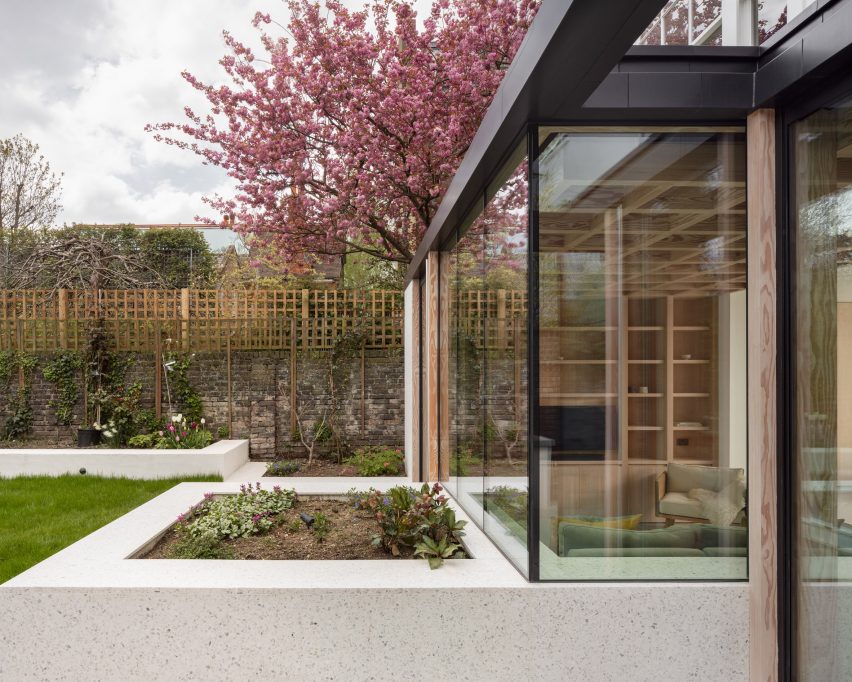
"This unique material extends out towards the garden to create retaining walls that anchor the building into the surrounding landscape. The continuation of the terrazzo into the garden reinforces the building's connection between indoor and outdoor space, a driving principle behind desert modernism," added Gamble.
At the end of the split-level garden on a wooden deck, the studio added a cork-clad pavilion topped with a monopitched sedum roof. Named The Hide, the multifunctional space is currently used as a yoga studio but it can also accommodate a home office.
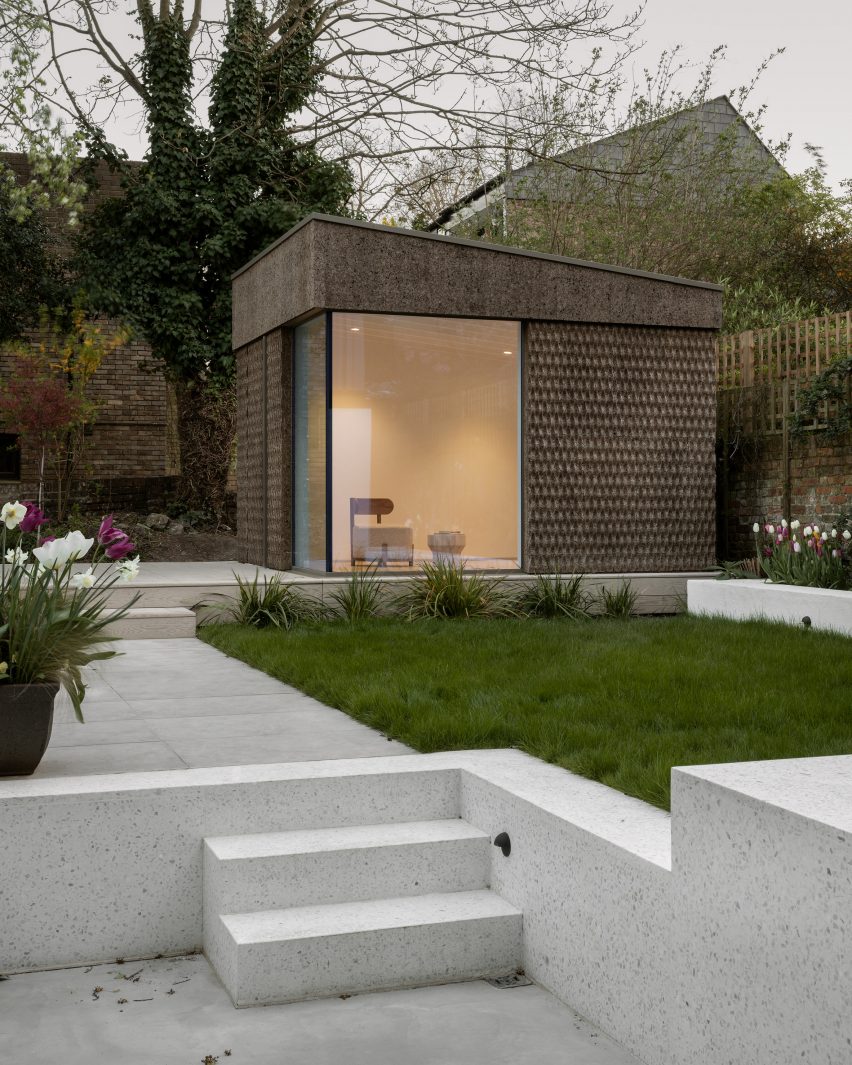
"The cork protects [The Hide] from the elements whilst wrapping it in a 'thermal jacket' to keep it warm – it acts as a natural, sustainable and breathable form of insulation whilst providing a unique visual appearance," said Gamble.
"The wavy texture is almost bark-like in appearance allowing the building to blend seamlessly into its immediate context, defined by the mottled historic brick walls and dense vegetation that lines the garden."
Other home extensions by Will Gamble Architects include Pergola House in Leicestershire and The Parchment Works in Northamptonshire.
The photography is by Ståle Eriksen.